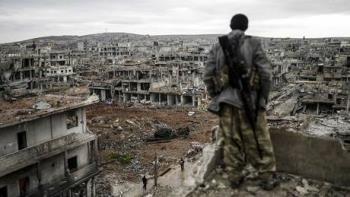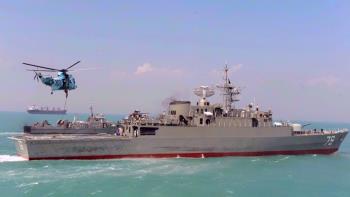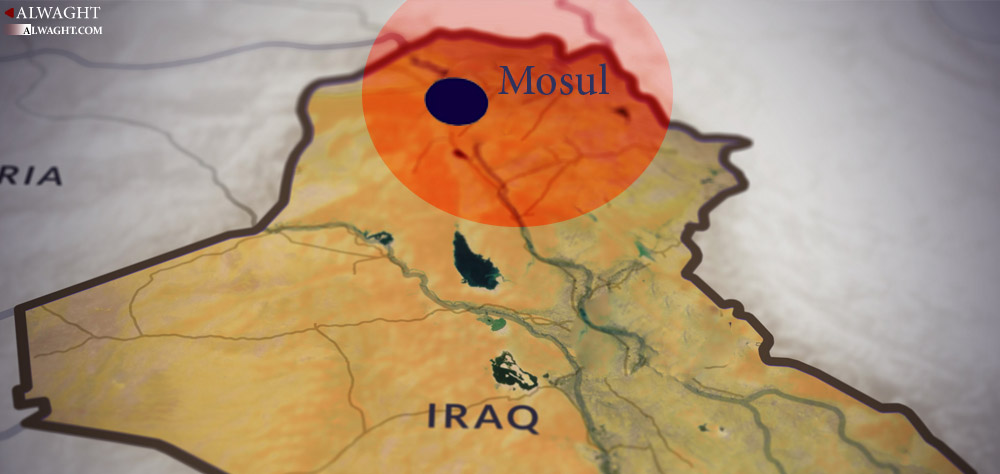Alwaght- Operation to liberate Iraq’s second largest city, Mosul, from ISIS was ordered by the Iraqi Prime Minister Haider al-Abadi on September 14, last year and is taking its stages according to the schedule.
After recapturing eastern part of Mosul from the terrorist group, Iraqi army launched a large scale operation to liberate the city's western part that is suffering slowdown due to the terrorist group’s counterattacks as well as worries raised by the country’s military about safety of the civilians who are now caught in the crossfire of the two warring sides in western Mosul front line.
However, other reasons have been cited for the slackened speed of Mosul liberation offensive, including:
1. US violations and share-seeking
Washington apparently seeks building new influence in the post-ISIS Mosul, something convincing the US leaders that at the present time it is not in their best interest to allow the anti-terror battle in the Iraqi city end. Actually, the final and main goal is building military bases in Iraq’s north. Americans' desire to stay in Iraq is, however, countered by PM Haider al-Abadi who frequently said Baghdad will never permit any foreign forces, including those of the US, to remain on the Iraqi soil once Mosul is fully reclaimed from ISIS terrorists.
Washington, in reaction, has been struggling for prolonged war in Mosul in a bid to press Baghdad officials to allow them establish a military base that is expected to accommodate 25,000 to 30,000 American military personnel. The US claims such a military base will provide Washington's security operations in Syria and Iraq with logistics. The analysts suggest that the US eyes an Afghanistan-style plan for Iraq, that is forming a native military force accordant with its activities in Iraq, beside its air and ground bases in Nineveh and Al Ankara provinces, and Kurdistan region as well. The allied native forces that Washington conceives of could be similar to the Syrian Democratic Forces, a militant bloc comprised of various sectarian and ethnic militant factions with the Sunnis in the center and working in close cooperation with the US.
2. US airstrikes against Iraqi army positions
Since the beginning of the Mosul campaign, the advancing Iraqi forces have indiscriminately been targeted by American fighter jets' direct bombings which left many military personnel killed and injured and wreaked massive havoc in the country’s infrastructure.
3. US opposition against Iraqi popular forces' participation in the battle
The US goes to great lengths to preclude maximum participation of the voluntary forces in the fight against terrorism on Mosul front lines as it sees them affiliated with the Iran-led Axis of Resistance. This is perhaps the main drive for Washington to seek tarnishing the image of the Resistance and the Public Mobilization Forces (PMF), a leading popular Iraqi force formed in opposition to ISIS, through its media propaganda. Iraq now recognizes PMF as an official national military force, something drawing the deep American concern. The US worries that PMF recognition will pave the way for force’s entry to other areas in the society, including the politics, culture, and economy.
The voluntary force has played a crucial role in the current advances in Mosul’s west, the only part of the city still held by the terrorist militants. The Western-Arab media are promoting the idea that Iran plays the key role in Mosul assault, adding that Tehran does so via the instrument of PMF.
4. Civilians trapped in the city
The Iraqi officials say over 1 million civilians remain in Mosul, as they add that 12,000 have fled the contested city. The Iraqi military progresses in the residential areas and streets is almost slackened since ISIS terrorists are taking shelter in the houses and blending in with the civilians, making it difficult for the army to differentiate between them and the civilians.
5. ISIS use of “immoral” tactics
The most noticeable ISIS tactic is use of civilians, particularly the children, as human shield. So far many children have been killed because of this terrorist abuse. The figures show that nearly 10,000 of them have managed to flee ISIS detention since Iraq launched Mosul retaking operation in 2016. The terrorist group also uses “speedy fight and move” tactic which majorly takes place inside residential areas, with civilians held hostages to get concessions of the army.
6. Personnel shortage
Recently, an Iraqi commander who leads military units in eastern Mosul battlefields has claimed that forces shortage is the main cause behind the slow advances of the country’s army in Mosul’s western side. He said that “the army has to simultaneously capture areas and cleanse them of terrorists, and this makes the process slow. The operation could be much easier if there were units only tasked with cleansing behind the advancing forces.”
Generally, among the above-mentioned factors, the civilians' factor is the major cause that has reduced speed of the Mosul offensive. Other favtors are also setting up roadblocks, like American breaches and lack of adequate combat forces. Despite all these hurdles, the ISIS obliteration in Iraq significantly remains a matter of time.



























